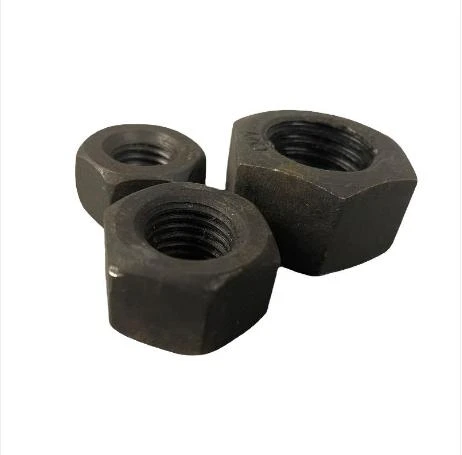

Understanding HT Stud Bolts for Enhanced Structural Integrity and Performance
11月 . 09, 2024 17:51 Back to list
Understanding HT Stud Bolts for Enhanced Structural Integrity and Performance
Understanding HT Stud Bolts A Comprehensive Guide
HT stud bolts, or High Tensile stud bolts, are crucial components in various engineering applications due to their strength and durability. Primarily used in construction, automotive, and manufacturing industries, these specialized fasteners are designed to withstand high levels of tension and temperature, making them essential for connecting various structural elements securely.
What Are HT Stud Bolts?
HT stud bolts are made from high tensile steel alloys, which are engineered to provide superior mechanical properties compared to standard bolts. The term stud refers to a type of fastener that has threads along its length, allowing it to be inserted into a nut or tapped hole to secure materials or components together. The high tensile strength of these bolts means they can bear higher loads without deforming or breaking, which is critical in applications subject to significant stresses.
Applications of HT Stud Bolts
HT stud bolts are widely used in a variety of applications. In the construction industry, they are employed to secure steel structures, beams, and frames. Their strength ensures stability and safety in buildings and bridges, especially in seismic zones where structural integrity is paramount. In the automotive sector, HT stud bolts are used in engine assemblies, suspension systems, and chassis due to their ability to withstand the extreme forces and vibrations encountered on the road.
Additionally, HT stud bolts are utilized in the oil and gas industry for securing pipelines and drilling equipment. Their resistance to corrosion and high temperatures makes them ideal for such challenging environments. Similarly, in shipbuilding, these bolts are essential for securing hull components and machinery, providing a reliable connection that can endure harsh marine conditions.
ht stud bolt

Characteristics and Standards
HT stud bolts are manufactured according to various standards, such as ASTM (American Society for Testing and Materials) and ISO (International Organization for Standardization). Quality is paramount, and these standards ensure that the bolts possess the appropriate tensile strength, ductility, and hardness. The grading of HT stud bolts is typically rated based on their yield strength and tensile strength, with higher grades offering enhanced performance.
One of the key characteristics of high tensile stud bolts is their heat treatment process. This involves heating and cooling the bolts to improve their mechanical properties. Heat treatment can significantly enhance the strength and toughness of the bolts, making them suitable for high-stress applications.
Installation Considerations
Proper installation of HT stud bolts is essential to ensure their effectiveness. It is crucial to use the correct torque specifications when tightening these bolts to avoid issues such as over-tightening, which can lead to fatigue failure, or under-tightening, which can result in loosening over time. Additionally, the use of lubrication can help achieve the desired tension more accurately during installation.
Conclusion
In summary, HT stud bolts play a vital role in a multitude of industries, ensuring the strength and stability of various structures and systems. Their high tensile strength, resistance to environmental factors, and adherence to stringent manufacturing standards make them a reliable choice for engineers and builders alike. Understanding the characteristics and proper applications of HT stud bolts can significantly enhance the longevity and safety of any construction or manufacturing project. As technology and materials continue to advance, the role of HT stud bolts will remain essential in meeting the demands of modern engineering challenges.
Latest news
-
Similarities and Differences Between Plain Washer and Spring Washer - Fastener Comparison Guide
NewsJun.10,2025
-
Effortless Installation Self-Drilling Window Screws - Fast, Secure, and Durable Fasteners
NewsJun.10,2025
-
Self Drilling Stucco Screws for Fast, Secure Installation Self Tapping & Self-Tapping Fasteners
NewsJun.10,2025
-
Premium Hot Dipped Galvanized Self Tapping Screws - Durable Corrosion Resistance
NewsJun.09,2025
-
Discover M12 Weld Stud Benefits & Applications Guide
NewsJun.09,2025
-
M25 Stainless Steel Washers High-Durability Fasteners for Corrosion Resistance
NewsJun.09,2025

